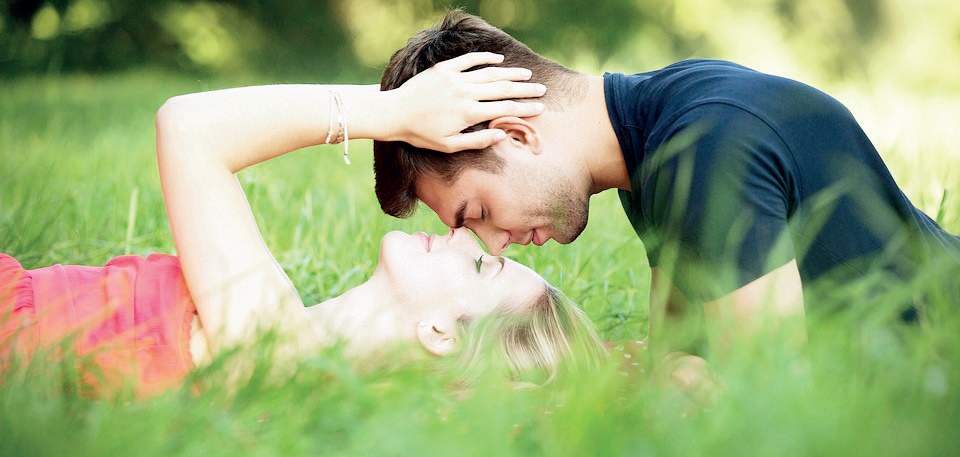|
Have you ever found yourself in an argument with a loved one where you are starting to talk about how upset you are, and in a very short time, find both of you getting caught up in ascertaining what were the “exact” facts of the matter? It could be about saying who said what, when and in what tone, what happened and where it happened. Sometimes, the search for facts can get you into loops of memory – you might be saying, “It was Tuesday evening, we were just outside Corner House on 12th Main in Indiranagar,” and your partner might interrupt saying, “That is clearly not correct. Corner House shifted from there months ago!’
The argument then gets side-tracked into which ice-cream place, where and what, and nothing productive emerges from the discussion. The fight was in all likelihood about feeling let down or hurt in some way, and wanting to let that come out – nothing to do with where this ice-cream place is or was, when it was visited, what was had there. We see it so often when someone is bereaved – people coming in to offer their respects often ask the bereaved for the facts: when did it happen, how, who was there at that time, which hospital, what had been tried to resuscitate the person and so on and so forth to the point where sometimes the grieving persons get angry and tell them off. Are the facts so important? Could the person offering condolences just focus on being of some comfort, pay their respects and be off? We get facts and truth quite mixed up. They are really not the same at all. Truth is there is something that needs to be acknowledged and addressed. The attempt is to get some sense of comfort and companionship over that – not cross all the ‘t’s and dot all the ‘I’s. It might be important in a court of law to get the facts all lined up, but in real life relationships, truth is a far more important matter. So, what makes us dig up all these facts and figures when we just want to say, “You were rude to me. I got hurt, and I wish you’d help me feel better?” I might have had the banana-split or maybe some gelato, and it might have been Milano and not Corner House at all – the facts of it are not as important, as the truth that I was miffed that you took 3 big spoons out of mine, and when I reached out into your sundae, you turned away and that made me upset. I just want to say that I want fair sharing – that’s all. To listen to that truth, one needs to be able to actually hold interest in the other’s experience and drop the defensiveness for a little while, to know we might hurt even without intending. If we can do that, we might be able to say, “Hey, Sorry!” and go on to further sundaes without much incident. As written for and published in The New Indian Express  What would you say if I told you being stuck in Bangalore traffic can teach you a thing or two about love and relationships? You might find that ridiculous, but let me take just one aspect today and you might see what I mean. Imagine you are driving quietly along the few two-way tree-lined avenues left in the city. It is a breezy, balmy 26 degrees, and you are in a place of general wellness and happiness. You drive along at an easy pace, enjoyable pace, happy that you are in Bangalore and not sweating it out in one of our huge coastal cities or in the smog up in the North, and all is well in the world. Suddenly, you start hearing a series of beeps, and that rises to insistent honks and a vehicle behind you is wanting to go ahead. There is enough space for them to overtake you and go on without making all that noise, but they do that anyway. You wave them ahead, and they honk as if it is going out of style soon, blaring as they pass you by. What do you do? Do you just leave them be, or do you want to show them they can’t do that? Do you try and overtake them now, and blare your horn at them to show them what it feels to be at the receiving end of that behaviour? Or better still, do you overtake them and do it smoothly and quietly, setting an example on how they could have done what they needed without really impacting anyone else? Think about it like this: You are sitting in your balcony, enjoying the view with your cup of tea and the newspaper, feeling all cozy and comfortable, and you start hearing a few beeps and honks from your loved one. You let it be and suddenly there is a lot of blaring. Perhaps they come and sit in the other chair and maybe even grab the newspaper out of your hand. What do you do? Do you quietly take out your phone and read something else? Or do you get angry and shout at them for being such bullies? Or do you, in quite the saintly fashion, ask them perhaps they would like your tea as well, or maybe a fresh cup? Sounds familiar? The choices you have in both the situations are really not that different. There is so much traffic in our lives, both in the physical sense and in a more metaphorical sense, in our relationships. Sometimes, we get the unexpected honker, the surprise anger outburst for no known fault of ours. We don’t know what was happening to them – maybe they had an emergency, something urgent they needed, or just pent up emotions. Were they just being a horrible person at that time? Maybe – but if we assume that horribleness always, we may just end up being horrible ourselves. Like with traffic, perhaps it helps in relationships as well to go with the most benign attribution. As written for and published in the New Indian Express. As kids in school, we studied The Gift of the Magi by O Henry in high school English. This famous story is of a loving couple, too poor to buy each other Christmas gifts, and too desperately in love to not do that. One sells off their long hair to buy watch straps for the other, while they sell off the beloved watch to buy combs.
We also read The Nightingale and The Rose by Oscar Wilde that year, with its story of the sacrifice it took to make a rose red a precious gift for a beloved, and how it is tossed aside for something else, casting away in that bitter act what it meant to sacrifice for love’s sake. Between those two tragic love stories, our heartless English teacher had us teenagers in tears, more so because we were expected to write ‘precis’ versions. Does love really require gift exchanges? Would it really be impossible to love and be loved without ever exchanging gifts for birthdays, anniversaries, festivals, etc? Is it humanly possible to be perfect gift givers, or are designed to be tragic magi in our gifts, irrespective of our levels of poverty? So much of our culture is built around ceremonies of gift giving. Traditions dictate what gifts are appropriate and when. There is a whole list of what to give for which anniversary. One could interpret it as anything from a handwritten card to money, to property, or, going by certain movies, divorce papers! These gifting protocols may have helped some people but for many others, it also builds expectations. One is ‘supposed to’ give wood for the fifth anniversary. Sure, you could Google something that sounds appropriately woody enough, or close enough to hopefully pass, but then, it also has other expectations that it needs to be personal, it needs to have value for the recipient, something that they can cherish because otherwise, it is just a useless gesture. Why has gifting come to occupy such an important place in relationships? As a measure for how much one loves the other in its physicality and demonstrability, gifts seem to offer some value, but it really is hollow if gifting is the only measure of love offered. If those high school stories really hold any truth, it is this: Gifts aren’t as important as love. So this Christmas season, gift only if you really want to. As written for and published by The New Indian Express  Ever noticed how people in love call each other ‘honey’ and 'sweetie'? There is hardly any reference to other tastes. Occasionally, we might see a reference to a hot chilli or a spicy pepper, but that is more about sexiness and attraction rather than feelings of love itself. And no, it isn’t yet another western notion that has come to India. People in India have been calling their lovers ‘laddoo,’ ‘jilebi’ and what not. I haven’t heard anybody call their sweet-heart ‘mysore-pak’ or ‘kaaju katli’ but someone out there probably does use these terms for their loved one. A ‘paal payasam’ or a ‘kheer’ might be stretching it, but other more solid sweets – there is probably a person high on love somewhere calling out to the object of their affection with what could be the menu card of their local mithai wallah. When we are not sweetening it, we are quite likely babying it. Babe, baby, coochie-pie, kutti, kanna and every other thing that we last called a cousin’s 6 month old. What is it about love and sweetness and cuteness? What makes us become a melting pot of sweet, gooey chocolate when loving some one? Why do we go on and on with sweet nothings ? Are all these terms just empty calories that is going to fatten up the person, or is there anything actually nourishing to the soul about these sweet endearments that make us use them? It really shouldn’t be a surprise, but it turns out that we are all suckers for the kind of desire that the sweet words imply. When our loved one addresses us with the sweet endearments that show us we are special to them, we react with a specialness as well. Often times, even without realising that we have kinda softened, we reciprocate in some similar fashion. We may not use the sweet words ourselves, but we might be paying a bit more attention to them, feel a bit less hostile or angry, be less agitated or upset. Try it out next time you are having a fight with your beloved. For the first couple of times, have the argument using only their given name through the whole fight. No pet names. No sweet terms. No terms of endearment. Just see how long it goes and how bad it gets before you both work it out. Observe yourself, and observe your partner. A few days later, when you have the opportunity again (and I am sure there will be) use your pet names for them, use the terms of endearment, the sweet talk – and observe again what happens to the fight. Are you fighting as hard or as bitterly? Does it go on for as long? Are you both more willing to make up, or less so? Just notice what happens. For the everyday conflicts, I would bet that fights where you remember to use your sweet somethings (and mean it) are shorter, less harsh, and more easy to recover from.So, go on. Use those endearments. As written for and published by The New Indian Express As written for and published by The New Indian Express
The initial period when you are falling in love can be quite heady. You are seeing someone, and they seem just perfect, you are both doing everything you imagined you would be doing, and all is swell in the world. You are floating through your day with a smile so big that nothing can shake it. Your time away from each other is spend dreaming up ways to spend time together, and it is so difficult to keep your hands away from your mobile to just check your messages, or look at their insta post or somehow just connect. It is such a beautiful and content place in the privacy of the cozy little world of just the two of you. Love can be addictive like that. It takes a while, but eventually, you recognize that your worlds need to integrate, or maybe it is just that your friends pester you to be introduced to your special someone, and you give in. You will probably do a whole lot of preparatory talk on both sides – talk about your new love to your friends and tell your lover about each of your friends, their quirks, interests, their weirdness and all that you can think of, before engineering a situation where both worlds can collide and you can do nothing more but stay back and watch how things unfold. It is one thing if everyone loves each other right away, but what when not all your friends don’t seem to be OK with your new love? In fact, some of them are a lot more than not OK – they seem to see a whole different person than what you see and love. Where you see a charming, goofy person, they see an intrusive, obtrusive person. Where you see a naive, guileless person, they see a self-absorbed, social climber. Where you see a spontaneous, affectionate person, they see an aggressive, irritating person who doesn’t respect boundaries. Or vice versa: your new lover has strongly negative reactions to people you have known for years. You may not even pick up that there are some hostilities in the air as everyone tries to play nice. They probably give each other a fair bit of time, and you start to relax when – Boom! Things hit the roof, and everything is in the open, and it becomes one versus the other. You might try to mediate, but nothing works. What do you do under such circumstances? How do you choose between a new love and old friends? There are many break-ups because the new love can’t stand your old friends, and possibly equal number of lost friendships because the two worlds just couldn’t see eye to eye. Is it the headiness of your love that blinded you to your lover’s unsightly underbelly? Or, are your old friendships so stale that they can’t see this new, bright light and seek to undermine it? Short of extreme negative revelations, you just have to choose as you can and only time can tell which love was more true. |
InnerSight BloggersAjanta, Mahesh and other InnerSight counsellors and guest contributors are happy to share their thoughts here. Categories
All
Archives
September 2020
|


 RSS Feed
RSS Feed